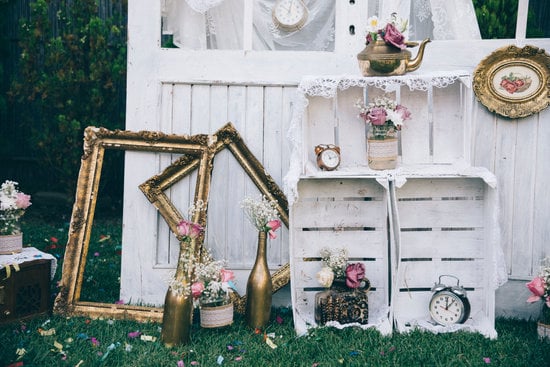What happens if someone objects at a wedding Catholic? Wedding ceremonies hold great significance in the Catholic faith, symbolizing the union of two individuals under the blessings of God. However, in some cases, the tradition of objecting at a Catholic wedding may come into play, leading to unexpected disruptions during the ceremony.
The practice of objecting at a Catholic wedding has historical roots and is deeply tied to the religious significance of marriage within the faith. Understanding the history and reasons behind this tradition is essential in comprehending its role in modern-day ceremonies.
In this article, we will explore the history of objecting at Catholic weddings, discussing the origins and reasons behind this practice. We will also delve into the specific role of the priest in handling objections during the wedding ceremony and outline the procedure for addressing objections should they arise.
Additionally, we will examine the legal implications and potential consequences for those who raise objections, as well as how it impacts the emotional well-being of the couple and their families. Join us as we navigate through this traditional aspect of Catholic weddings and its relevance in today’s society.
The History of Objecting at Catholic Weddings
In the Catholic faith, the tradition of objecting at weddings is rooted in the belief that marriage is a sacrament ordained by God and therefore not to be entered into lightly or without proper discernment. The role of objecting at weddings was originally intended to uphold the sanctity of marriage and ensure that both parties were entering into the union freely and without any undisclosed impediments.
Throughout history, objections at Catholic weddings have often been related to issues such as consanguinity (being too closely related by blood), affinity (being too closely related by marriage), or prior existing marriages. However, as society has evolved and legal requirements have become more stringent, objections at weddings have become increasingly rare. It is now more common for couples to go through pre-marriage counseling and engage in open conversations about any potential obstacles before they even reach the wedding day.
| Historical Context | Reasons for Objecting |
|---|---|
| Ancient Rome required marriage banns | To prevent clandestine or forced marriages |
| Medieval Europe required announcement of intention to marry | To allow community members to raise objections |
| Objecting related to consanguinity, affinity, or prior marriages | Rare due to modern counseling and legal requirements |
The Role of the Priest
The Catholic wedding ceremony is a sacred ritual that holds great significance for those who practice the faith. Central to the ceremony is the role of the priest, who not only officiates the wedding but also plays a crucial role in handling any objections that may arise. This section will delve into the specific responsibilities of the priest when it comes to addressing objections during a Catholic wedding.
In the context of a Catholic wedding, the priest acts as more than just a ceremonial officiant. In addition to leading the couple through their vows and facilitating their union, the priest is also tasked with ensuring that the marriage complies with the doctrines and regulations of the Catholic Church. One important aspect of this responsibility involves being prepared to address any potential objections that may be raised during the course of the ceremony.
If someone were to object at a Catholic wedding, it would be up to the priest to handle the situation with tact and sensitivity. The priest would first assess whether the objection has any valid grounds according to canon law, which outlines specific reasons for which a marriage can be impeded or declared null and void.
In some cases, an objection may be based on misunderstanding or misinformation, and it would be within the priest’s purview to clarify any misconceptions and provide guidance on how to proceed.
| Role of Priest | Responsibility |
|---|---|
| Officiating Wedding | Leads couple through vows and facilitates union |
| Addressing Objections | Evaluates validity of objection based on canon law; clarifies misconceptions if necessary |
The Procedure for Objecting
During a Catholic wedding ceremony, there are specific steps that are taken if someone objects. It’s important to understand the procedure for objecting in order to grasp the significance of this tradition within the Catholic faith. Below are the detailed steps that are typically followed in the event of an objection:
1. Reception of Objection: If someone wishes to object during a Catholic wedding ceremony, they must inform the priest beforehand. This should be done discreetly and with respect for the solemnity of the occasion.
2. Assessment by the Priest: Upon receiving an objection, the priest will assess its validity and relevance to the marriage at hand. The priest is responsible for ensuring that any objections raised are genuine and not frivolous.
3. Private Discussion: In some cases, prior to making a final decision, the priest may choose to have a private discussion with the individual who has raised an objection.
It’s important to note that objections at Catholic weddings are rare and usually carry significant weight due to their potential impact on the marriage ceremony. The procedure for objecting is designed to ensure that any concerns are addressed respectfully and in accordance with church protocol.
Ultimately, understanding what happens if someone objects at a wedding Catholic can provide insight into this time-honored tradition within the faith and how it contributes to the sanctity of marriage ceremonies.
Legal Implications
When it comes to the legal implications of objecting at a Catholic wedding, there are several important factors to consider. The act of objecting itself may not have direct legal consequences, as it is more of a tradition and symbolic gesture within the context of the religious ceremony. However, there can be potential legal ramifications depending on the circumstances and reasons behind the objection.
False Claims
If someone were to make a false or frivolous objection during a Catholic wedding ceremony, it could potentially lead to legal repercussions. Making baseless claims with the intention of disrupting the wedding or causing harm to the couple could constitute defamation or intentional infliction of emotional distress, depending on the laws in place in that particular jurisdiction.
Intervention by Authorities
In extreme cases where an objection is raised due to legitimate concerns about the validity of the marriage, it may prompt intervention by legal authorities. This could involve an investigation into any issues related to consent, coercion, or other factors that could render the marriage invalid. If such concerns are substantiated through evidence, it could lead to annulment proceedings and other legal actions.
Civil Consequences
While objections at Catholic weddings are typically handled within the context of church law and tradition, they can also have civil consequences depending on local regulations. In some jurisdictions, intentionally disrupting a wedding ceremony could result in civil penalties or lawsuits for damages if it can be proven that the objection was made with malicious intent.
In summary, while objecting at a Catholic wedding may not have direct legal implications within church proceedings, there can be significant legal consequences if an objection is made under false pretenses or with malicious intent. It’s important for individuals to carefully consider their motives before raising an objection during such a sacred event.
Emotional Impact
When someone objects at a wedding catholic, it can have a significant emotional impact on the couple and their families. The emotional toll of such an event can be considerable as it disrupts what is intended to be a joyous and sacred occasion. The emotional impact can be felt by all those in attendance, from the couple to their immediate family and friends.
Disruption of Joy
The act of objecting at a wedding catholic can disrupt the joy and happiness that should accompany the ceremony. Instead of focusing on their union and celebrating their love, the couple may feel shocked, embarrassed, or even angry that someone has chosen this moment to voice an objection. Their families and guests may also experience a range of emotions including confusion, discomfort, and concern for the well-being of the couple.
Familial Strain
The emotional impact of such an event can also strain relationships within the families involved. If the objection stems from familial issues or grievances, it may exacerbate existing tensions or create new rifts between relatives. The incident could cause long-lasting damage to family dynamics and lead to prolonged feelings of hurt and resentment among those affected.
Long-Term Psychological Effects
Furthermore, the emotional impact of someone objecting at a wedding catholic has long-term psychological effects on the couple. It may lead to feelings of insecurity about their relationship, doubts about their decision to marry, or fear that similar disruptions could occur in the future. These emotions have the potential to linger long after the wedding day has passed, affecting how they view their marriage and impacting their overall well-being.
Resolving Objections
To provide clarity on how objections are resolved at a Catholic wedding, here are the steps typically taken by the priest and others involved:
- Assessment of Objection: The priest will first assess the nature of the objection raised. It is important to determine whether the objection is based on legitimate grounds or if it is simply an attempt to disrupt the ceremony.
- Private Discussion: If it is deemed necessary, the priest may request to have a private discussion with the individual who raised the objection. This allows for a more thorough understanding of their concerns and provides an opportunity to address any underlying issues.
- Consultation with Couple: The couple getting married will be consulted regarding their wishes in light of the objection. They may have input on how they would like the situation to be handled, including whether they wish to proceed with the ceremony despite the objection.
- Resolution Decision: Based on all factors considered, including any guidance from Church doctrine, the priest will make a decision on how to proceed with regards to resolving the objection.
It’s important to note that while objections at Catholic weddings are rare, they do occur, and having clear procedures in place ensures that any issues can be addressed effectively while minimizing disruption to what should be a joyous occasion for all involved.
Modern Day Considerations
In conclusion, the act of objecting at a Catholic wedding is a tradition that dates back centuries and holds significant meaning within the faith. However, in modern times, the practice has evolved to reflect changes in societal norms and expectations.
While the act of objecting was traditionally seen as a way to ensure the validity and consent of the marriage, it is now rare for objections to occur during Catholic wedding ceremonies. The perception of objecting at weddings has shifted from being a necessary safeguard to an outdated and potentially disruptive practice.
In today’s society, objections at Catholic weddings are met with surprise and concern due to their rarity. The focus of modern-day weddings has shifted towards celebrating love and unity, rather than entertaining doubts or legal formalities. As a result, objections are now viewed as unexpected and unwelcome interruptions to what is meant to be a joyous occasion for the couple and their loved ones.
Despite its historical significance, the act of objecting at Catholic weddings has largely faded into obscurity in modern times. The emphasis has shifted towards supporting the couple in their commitment to each other, with objections being seen as unnecessary and intrusive. Ultimately, while the tradition of objecting at Catholic weddings may still hold symbolic value within the faith, it is unlikely to play a significant role in most couples’ wedding ceremonies today.
Frequently Asked Questions
What if Someone Objects at a Catholic Wedding?
If someone objects at a Catholic wedding, it typically signifies that they believe there is a legal or moral impediment to the marriage taking place. This objection would be taken seriously by the presiding priest, who would need to address it before proceeding with the ceremony.
Can the Wedding Go on if Someone Objects at the Wedding?
If someone does object at a Catholic wedding, the presiding priest will need to investigate the objection and determine its validity. The wedding can only go on if the priest is satisfied that there are no legitimate reasons for the marriage not to take place.
If a serious reason for impediment is found, the wedding may be postponed or even canceled.
Can a Non Catholic Be a Maid of Honor in a Catholic Wedding?
Yes, a non-Catholic can absolutely be a maid of honor in a Catholic wedding. The Catholic Church generally does not have specific requirements regarding the religious affiliation of members of the wedding party.
As long as the couple getting married and their chosen attendants are respectful of the Catholic Church’s traditions during the ceremony, there should be no issue with having a non-Catholic maid of honor in a Catholic wedding.

I have been involved in marriages for over 20 years helping couples and singles understand more about them.





